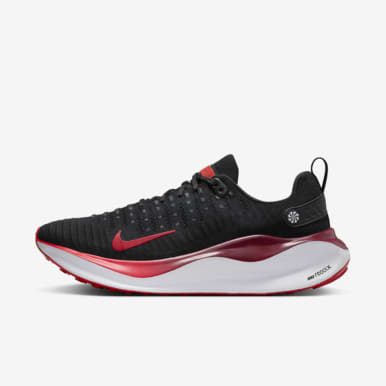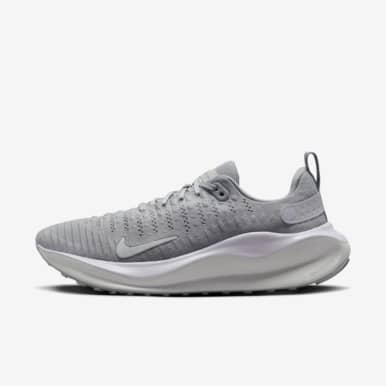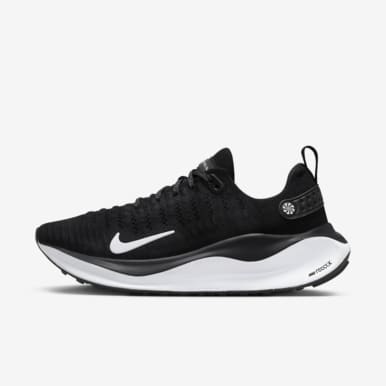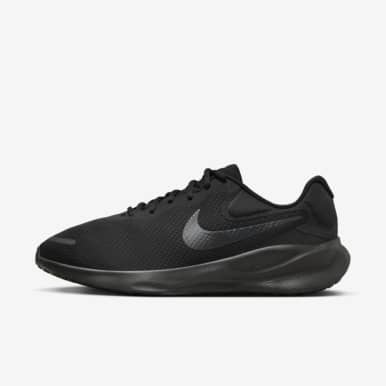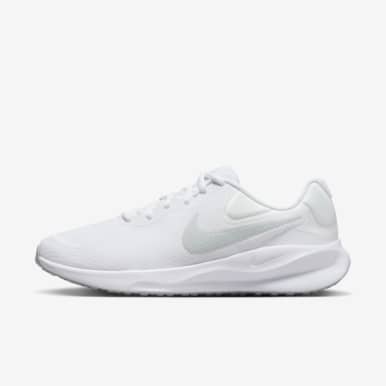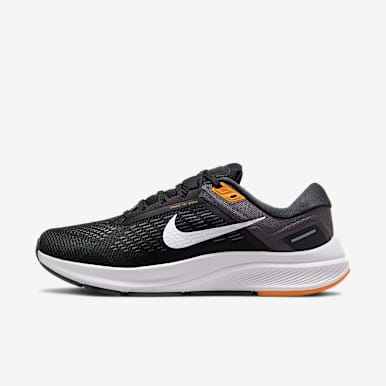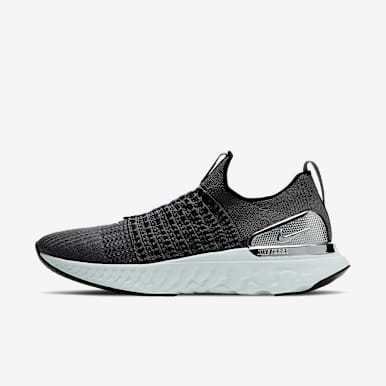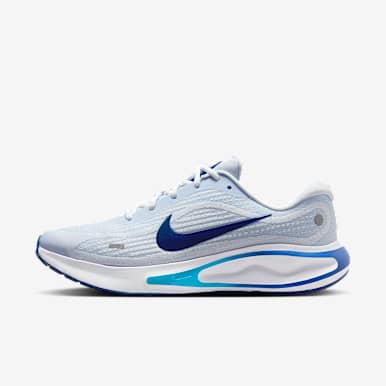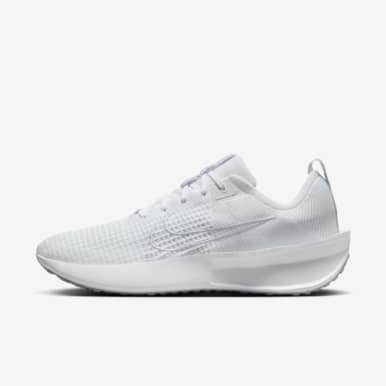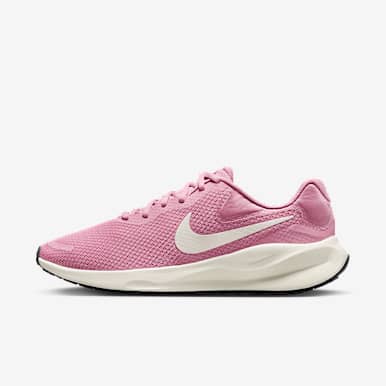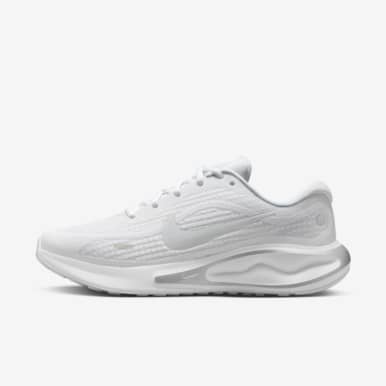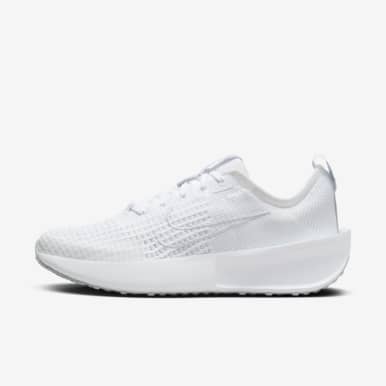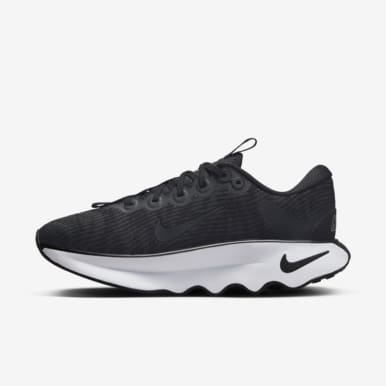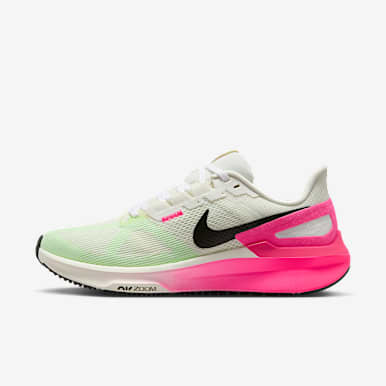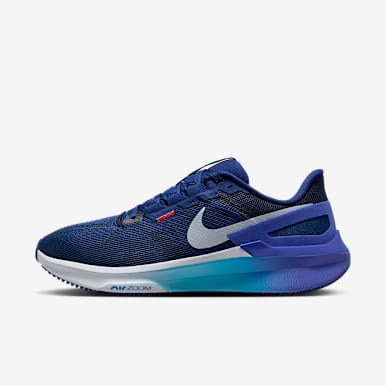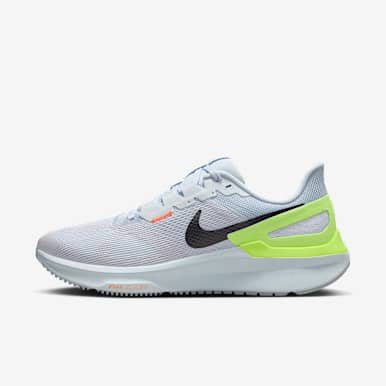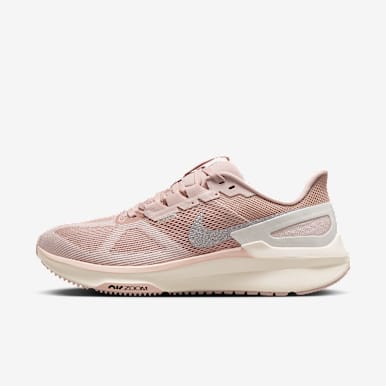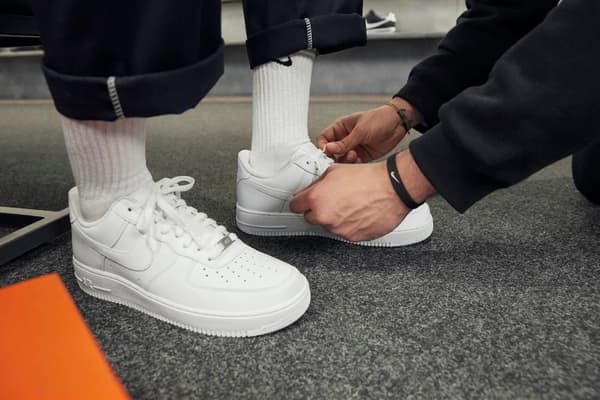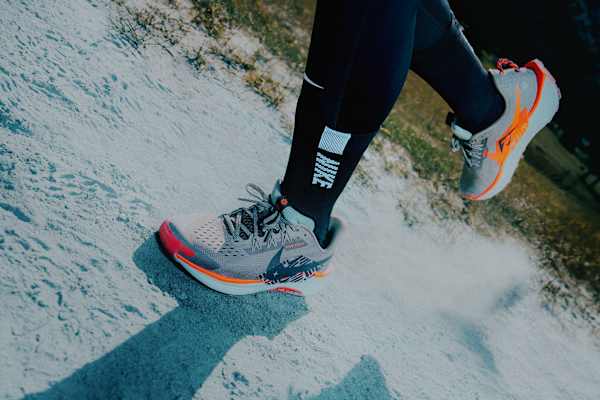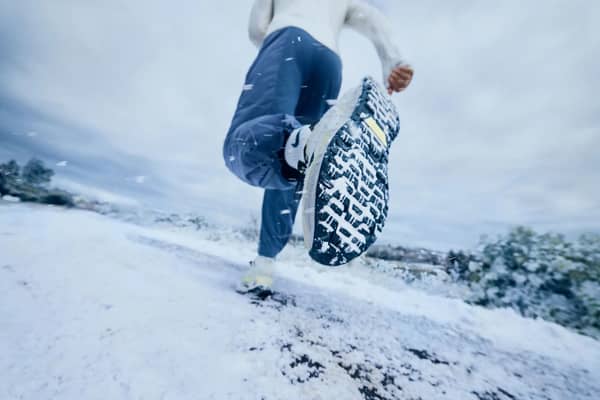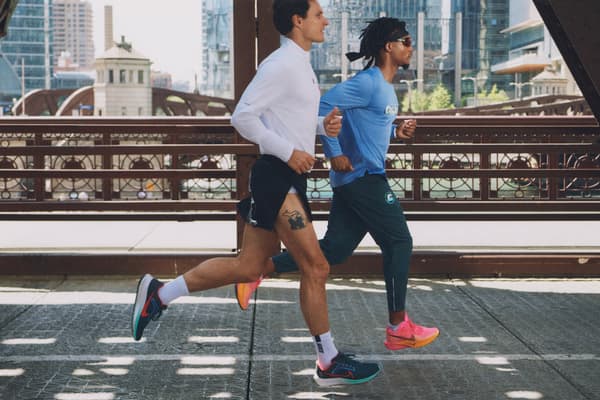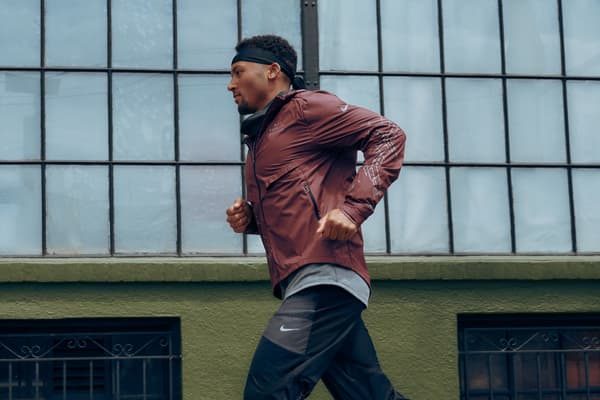What is pronation—and what are the best Nike Running Shoes for flat feet?
Buying guide
If you're a runner with flat feet, you may be wondering what that means for your training and which Nike shoes are the best fit. Here's what to know before you lace up.
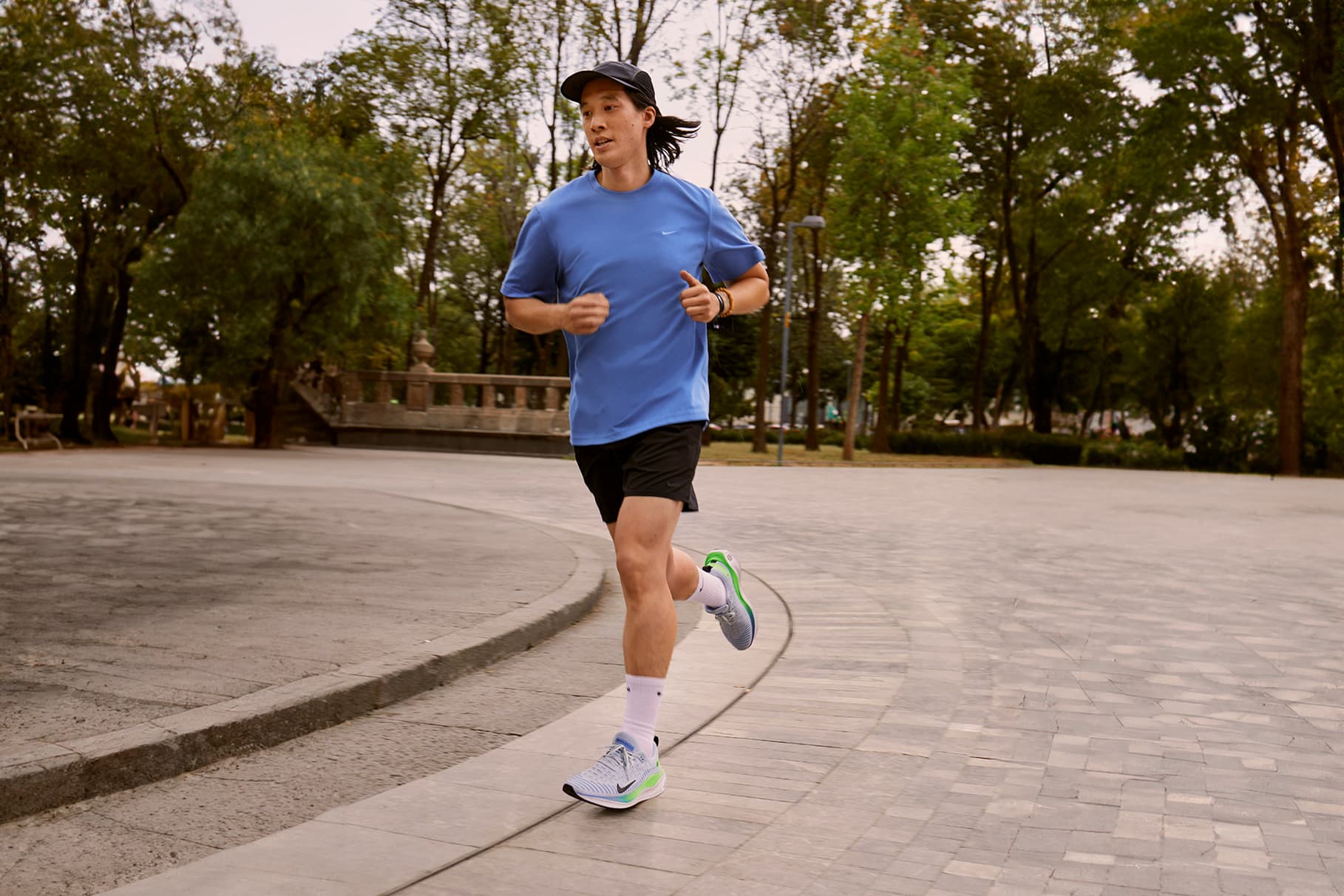
Feet come in all shapes, sizes and, yes, arch height. If you have flat feet, you may wonder what type of support is best for you, especially if you're a runner—beginner or otherwise. Bear in mind that not all flat feet are the same. Here's what to know about running with low arches and how to find the right pair of shoes for you.
Here are some of the best Nike shoes for runners who pronate:
What are flat feet, exactly?
How to know if you overpronate
People with flat feet tend to overpronate, which can put strain on the big toe, causing arches to collapse or the ankles to roll inwards, according to the American Academy of Orthopedic Surgeons. If you're looking for a quick way to check if you overpronate while you're running, take a look at your go-to pair of running shoes. If the inside of the bottom sole shows significantly more wear, you might overpronate. Better yet, have your running buddy take a video of you running on a treadmill or on the pavement to see if the inside of your arches collapse when they hit the ground.
If you do notice some overpronation, don't stress, it's usually not an issue without encountering pain or injury. However, according to the American Podiatric Medical Association, excessive pronation can contribute to heel pain as well as injuries to the hip, knee and lower back. If you are experiencing pain in these areas while running, talk to a podiatrist. Your doctor will be able to recommend how best to support your feet and prevent discomfort or injury—including with prehab exercises that can strengthen the foot muscles. Remember, shoes should never be approached as a solution for injury or pain.
What to look for in shoes for flat feet
According to the American Podiatric Medical Association, supportive shoes that are designed for stability and motion control can be beneficial for flat-footed runners. Stability running shoes are designed to support the arch of the foot with ample cushioning. For example, the Nike React Infinity Run Flyknit shoe is designed with Nike React foam, which feels smooth, bouncy and supportive underfoot. Nike React technology is 11 percent softer and offers 13 percent more energy return than Nike's previous technology, while also being more durable and more lightweight.
Alternatively, motion-control running shoes offer arch support in the midsole as well as additional heel cup support to keep the foot from rolling inwards during each step. A 2015 study published in the British Journal of Sports Medicine found that running in shoes with motion control was associated with a significantly lower overall injury risk among recreational runners with overpronated feet. Additionally, a 2020 study in the Journal of Orthopaedic & Sports Physical Therapy found that motion-control shoes may reduce the risk of pronation-related running injuries, but they did not influence the risk of other running-related injuries.
Consult your doctor, though, before you select a shoe to make sure you're making the best decisions for your needs. When you're shopping, it's key to try a variety of options in the shop, too, to find the right fit.
Key features for overpronators to consider in a shoe
1.Roomy toe box and wide forefoot
Running shoes that offer a wide forefoot, such as the Nike ZoomX Invincible Run Flyknit, help provide added stability and shock absorption as the foot hits the pavement with each step.
2.Firm heel support
Firm support in the heel can help to protect the tendons in the feet from strain that can be caused by overpronation. According to the American Podiatric Medical Association, overpronation can create additional stretching and pulling on the ligaments and tendons attaching to the bottom-back of the heel bone, which can result in heel pain. In addition to working with a podiatrist on proper diagnosis and treatment, the APMA recommends wearing well-fitting shoes that have shock-absorbent soles and rigid shanks (the part of the shoe under the arch of the foot). A shoe with a rigid shank won't bend easily if you try to bend it in half. The APMA also recommends looking for supportive reinforcement in the heel to help avoid heel pain.
3.Low but firm arch support
Opt for a low arch that feels right to you in the landing stage of your gait—it shouldn't be too rigid or too soft. The sole of the shoe should provide ample cushioning without compressing completely.
The best Nike Running Shoes for flat feet
1.Nike Air Zoom Structure
This Nike Air Zoom Structure features a firm midsole that feels stable and soft underfoot. It has a cushioned crash pad at the heel, helping support heel-to-toe transitions for runners who overpronate. The durable rubber outsole strikes a balance between stability and flexibility, and a breathable upper keeps the feet cool.
2.Nike React Miler
The Nike React Miler has a few features to help athletes with flat feet feel more stable while running. The sole has a unique rocker design that's shaped for support during all three phases of your stride—it feels flexible when you push off the ground, has a smooth ride when your foot moves forwards and cushions when you land. Nike React technology provides that soft yet responsive sensation at every step, and the bottom is wider for more stability on contact. Plus, there's a heel clip for additional support at the heel and a rubber outsole for traction.
3.Nike Infinity Run
Nike Infinity Run shoes come in lace-up and slip-on styles with a Flyknit upper that's engineered to provide support and ventilation where you need it most. Like the Miler, the Infinity Run features a rocker sole and Nike React technology for a soft yet responsive feel. Flywire technology also provides additional support through the midfoot. The foam height is higher in this shoe, but there's less material between the insole and the midsole, which puts the foot closer to the cushioning.
Frequently asked questions
Do people with flat feet need special shoes?
Not necessarily. Some people with flat feet feel comfortable in a neutral running shoe, while others need the extra support of a stability shoe. According to the American Podiatric Medical Association, excessive pronation can contribute to heel pain as well as injury to the hip, knee and lower back. If you are experiencing pain in these areas while running, talk to a podiatrist, who can provide expert recommendations on how best to support your feet and prevent discomfort or injury, along with exercises to strengthen the muscles in the foot or with specific footwear recommendations.
What shoes should people with flat feet avoid?
While personal preferences and comfort levels will vary among people with flat feet, it's generally best to avoid shoes that don't have ample support in the midfoot such as flip-flops, high heels and flats with thin soles.
Words by: Lindsay Frankel
